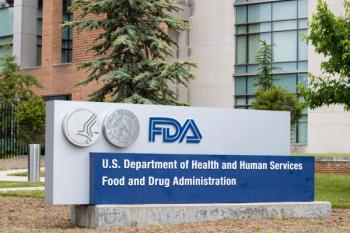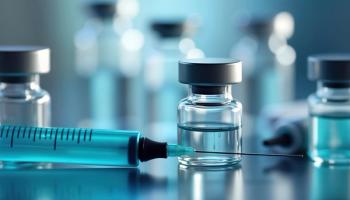
PSG Report: Humira Biosimilars Ease Specialty Drug Claim Costs
Specialty drug spending rose 9.6% in 2024, but Humira biosimilar adoption is helping to slow cost increases.
The switch to the biosimilars of Humira (adalimumab) is beginning to slow the cost per claim of specialty drugs, according to the latest
Although Humira continues to be a top specialty drug by spend, the 10 biosimilars that reference Humira are starting to have an impact. In 2024, the Humira biosimilars accounted for 14.1% market share, which represents a substantial shift compared with 2023. Continuing into 2025 and beyond, this percentage will continue to increase, PSG said.
“In 2023, the Humira biosimilars had a 1% market share,” Morgan Lee, Ph.D., MPH, senior director of Research & Strategy at PSG, said during an interview. “Now, it’s just over 14%. Other biosimilars continue to get more market share, but my impression based on the data from the [Humira biosimilars] are going to be what moves the needle in terms of what we were seeing with that overall trend.”
The Humira biosimilars are starting to make headway in the market, with some of the adalimumab products displacing the branded product on some formularies. At the end of 2024, the adalimumab biosimilars had 21% of the volume, according to the
In the past, health plans had been slow to adopt biosimilars, but over the last years, biosimilar market shares exceeded those of originators by a mean of three years after the first biosimilar, according to a study
“Irrespective of how aggressive the originator manufacturer is in offering discounts, it does seem as if biosimilars are a good thing in terms of the market and driving down the average price of the molecule,” James D. Chambers, Ph.D., M.Pharm., M.Sc., said in an interview earlier this year. “Biosimilars drive down the price, and not just for payers but for patients also.” Chambers is a health economist at Tufts Medical Center and leads the Specialty Drug Evidence and Coverage (SPEC) Database.
Total specialty spend
In 2024, specialty drug spending increased 9.6% compared with a 14.4% increase in 2023, with rebates having a small impact on specialty spending, according to PSG’s specialty trend report. In 2024, net of rebates, spending increased 9.2%. PSG speculates that there has been less utilization of drugs with rebates as biosimilars and specialty generics put downward pressure on the spending.
Although increased utilization is the largest driver of the increases in specialty drugs, cost per claim has not been increasing as quickly as it had in the past. From 2022 to 2023, the cost per claim increased 6%; from 2023 to 2024, the cost per claim increased 2.3%.
“The claim utilization trend was about the same as what it was last year, but the cost per claim trend went way down,” Lee said. “There are some other factors at play, but our analyses are showing us that the majority of this is coming from the impact of biosimilars.”
In 2024, PSG found that Humira and Stelara (ustekinumab) continued to be among the top specialty drugs by spend. For Humira specifically, the utilization trend has gone down by 18.6%, and the cost per claim has gone down 1.5%. Stelara’s utilization trend has decreased 2.2%, although the cost per claim has increased 6.3%.
Biosimilars uptake
From 2022 to 2024, biosimilar utilization increased for all drugs for which biosimilars were available. Overall biosimilar market share continued to grow — especially for Lucentis, Epogen/Procrit, and Remicade biosimilars.
But Lee said the real impact of the biosimilars is showing up in the cost-per-claim analysis in the pharmacy benefit. From 2023 to 2024, the cost per claim increased in the medical benefit but decreased in the pharmacy benefit, which PSG attributes to the Humira biosimilars beginning to have an impact.
Biosimilars to Humira (adalimumab) came on the market in 2023. Starting with the first, Amgen’s Amjevita (adalimumab-atto), many of these Humira biosimilars have had two prices, a high list price with a rebate and a lower one without. There are now 10 Humira biosimilars that are available.
The uptake of Humira biosimilars was slow throughout 2023, which PSG said in the report was because the largest PBMs kept brand Humira in a preferred position and added its biosimilars at parity. But in 2024, PBMs began shifting their strategies on Humira biosimilars.
Before 2024, the impact of biosimilars was seen mostly on the medical side. The biosimilars in oncology and supportive care have a larger market share. For example, in 2024 the biosimilars for the targeted oncology treatment Herceptin (trastuzumab) had a market share of 95.6%, and the biosimilars of Neupogen (filigrastim) have a market share of 92.2%, according to PSG.
On the pharmacy side, there has been slower uptake of the biosimilars, Tara Higgins, Ph.D., senior clinical consultant at PSG, said in an interview. “We’ve seen that the manufacturers are not as willing to let [that uptake] happen. They want to protect their branded market share.”
This year and going into 2026, both Lee and Higgins suggest that the biosimilars of both Humira and Stelara will continue to lower cost per claims for these
Eight biosimilars of Stelara have been approved, with the most recent being Starjemza in May 2025. Since February 2025, six ustekinumab biosimilars have launched on the U.S. market: Wezlana, Selarsdi, Pyzchiva, Otulfi, Yesintek and Steqeyma.
Higgins said in an interview that manufacturers are taking a different approach with the Stelara biosimilars. “I think the uptake is going to be a little more dramatic with the Stelara biosimilars. That’s just speculation, but I think you’ve got the history behind us as far as what worked and what didn’t work with Humira,” she said.
Newsletter
Get the latest industry news, event updates, and more from Managed healthcare Executive.























